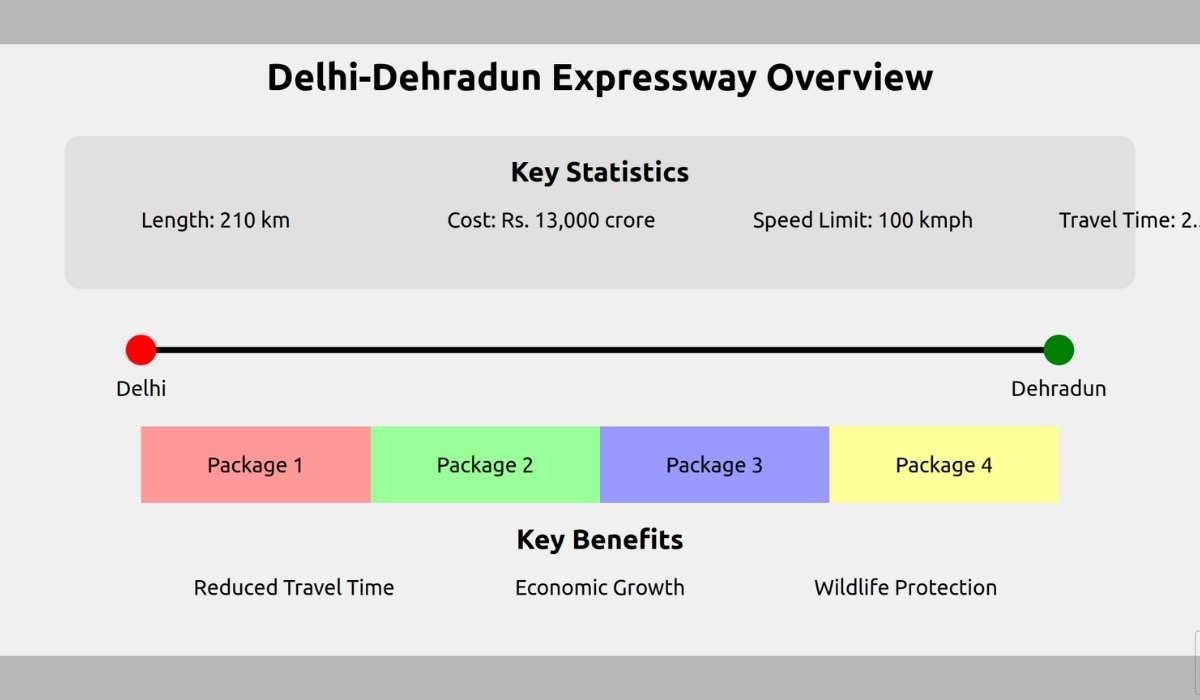The real estate market in India has been experiencing a boom, with properties being sold at inflated prices and a scarcity of available inventory. However, as we approach 2024, it is crucial to assess the sustainability of this growth and the potential risks associated with investing in real estate. In this article, we will explore the insights shared by industry expert Ashish Jey on the current state of the real estate market and the factors to consider when making investment decisions.
Understanding the Reasons Behind the Real Estate Boom
To comprehend the current real estate market dynamics, it is essential to examine the factors that have contributed to the recent boom. Ashish Jey highlights two primary reasons:
- Work from Home and the Return to Metro Cities: The COVID-19 pandemic led to a significant shift towards remote work, causing people to return to their hometowns. However, as offices have started to reopen, there has been a surge in rental demand in metro cities like Pune, Mumbai, Bangalore, and Delhi NCR. This, in turn, has prompted people to consider purchasing their own homes.
- Liquidity in the Market: The demonetization of high-value currency notes in 2016 led to a substantial influx of money into the banking system. While some of this money has been accounted for, a portion of it has made its way into the real estate market through multiple hands. This increased liquidity has driven demand for agricultural land and plots, further fueling the real estate boom.
“If we talk about agriculture land, bought plots, so further liquidity demand was generated from there. And further it was invested. So it stopped from big cities to small cities.” – Ashish Jey
Choosing Between Flats and Plots: Factors to Consider
When considering investing in real estate in 2024, one of the primary decisions investors face is whether to opt for a flat or a plot. Ashish Jey provides valuable insights to help navigate this decision:
- Potential for Returns: While plots have seen a significant price escalation in smaller cities and tier-2 cities, Ashish Jey believes that the potential for further price appreciation in these areas is limited due to the limited buying capacity of the local population. On the other hand, plots in metro cities, particularly those located on wider roads or larger in size, may offer better investment prospects.
- Availability and Demand: The supply of plots is decreasing in both metro cities and smaller cities, making them a more attractive investment option. However, when it comes to flats, the availability is higher, and the demand is driven by end-users seeking amenities and convenience.
- Living Preferences: For those looking to purchase a property for self-occupation, flats are generally the preferred choice due to the amenities and convenience they offer. MyOne constructions, where the buyer has control over the construction process, are gaining popularity in this segment.
“And you have to live by yourself. According to living, the flat is the best. Because you get the amenities there, so you choose that.” – Ashish Jey
The Possibility of a Housing Market Correction
While the real estate market is currently experiencing a boom, Ashish Jey cautions against the possibility of a housing market correction in the near future. He highlights the following factors that could contribute to a potential crash:
- Fear of Missing Out (FOMO): Many people are investing in real estate due to the fear of missing out on potential profits or the belief that prices will continue to rise indefinitely. This mentality can lead to overvaluation and unsustainable growth.
- Investor-Driven Market: The current real estate market is largely driven by investors looking for short-term profits rather than end-users. This can create a bubble-like situation where prices are artificially inflated.
- Limited Buying Capacity: The high prices of flats, often in the range of 4-5 crores, raise concerns about the ability of buyers to secure loans or have the necessary funds to complete the purchase.
- Upcoming Installments: Many new launches offer attractive payment plans where buyers pay a small percentage upfront and the remaining amount in installments. However, when the time comes to pay the next installment, such as at the superstructure stage, some buyers may struggle to arrange the funds, leading to a surge in supply as investors attempt to exit their investments.
“The boom that was seen in 2012, I think it can stay for the next 6-9 months but after that, what is happening, you have to understand this, Many people are launching Flats, now you give 10% and the rest you give on position, now you give 30% and the rest you give on superstructure time.” – Ashish Jey
Ashish Jey predicts that a crash in the real estate sector is likely to occur, not in 2024, but in 2025. He advises investors to exercise caution and make decisions based on their specific requirements.
Investing in Hill Stations: Opportunities and Risks
With the increasing popularity of hill stations as investment destinations, Ashish Jey shares his insights on the opportunities and risks associated with investing in these areas:
Unlock Your Dream Home Today!
Get personalized real estate insights delivered straight to your inbox.
- Attractive Opportunities: The growing trend of people seeking to escape the pollution and congestion of cities has led to an increased demand for properties near hill stations. This presents attractive investment opportunities with the potential for good profits.
- Risks to Consider: When investing in hill stations, it is crucial to be mindful of certain risks. Properties located on slanting or unstable land, such as those prone to landslides, should be avoided. It is advisable to seek local expertise and thoroughly assess the land before making a purchase.
- Amenities and Connectivity: Investors should also consider the availability of amenities, such as hospitals and schools, in the hill station they are considering. Connectivity to major cities is another important factor to evaluate. Dehradun, for example, offers a good balance of amenities and connectivity, with a proposed 6-way highway connecting it to Delhi.
“Dehradun is a good opportunity because it is a flat area. You can save yourself from buying land at a major hill station. You can also check the amenities at the hill station. Are there any hospitals or not? Are there any good schools?” – Ashish Jey
Conclusion
Navigating the real estate market in 2024 requires a thorough understanding of the factors driving the current boom and the potential risks associated with investing in this sector. While the demand for real estate has been fueled by the return of people to metro cities and increased liquidity in the market, it is essential to exercise caution and make informed decisions.
When choosing between flats and plots, investors should consider factors such as potential returns, availability, demand, and living preferences. The possibility of a housing market correction in the near future, particularly in 2025, underscores the importance of a cautious approach.
Investing in hill stations presents attractive opportunities, but it is crucial to assess the risks and evaluate factors such as land stability, amenities, and connectivity before making a purchase.
Ultimately, the key to successful real estate investment in 2024 lies in thorough research, a long-term perspective, and a focus on individual requirements rather than short-term profits driven by fear of missing out.
The current real estate boom in India is primarily driven by the return of people to metro cities due to the reopening of offices post-COVID-19, and increased liquidity in the market following the demonetization of high-value currency notes in 2016.
Investors should consider potential returns, availability, demand, and personal living preferences. Flats are generally preferred for self-occupation due to amenities, while plots in metro cities may offer better investment prospects.
Investors should be cautious of properties located on unstable land prone to landslides, and should assess the availability of amenities and connectivity to major cities before making a purchase.
Yes, Ashish Jey predicts a potential housing market correction may occur in 2025, driven by factors such as overvaluation due to FOMO and a shift in market dynamics towards investor-driven buying.
High prices, particularly for flats in the range of 4-5 crores, raise concerns about buyers' ability to secure loans or afford the necessary funds for purchases, which may contribute to market instability.
Investing in agricultural land can be attractive due to increased liquidity in the market and demand for such properties, but potential investors should carefully assess local buying capacity and future price appreciation.
The work-from-home trend has increased rental demand in metro cities, prompting many individuals to consider purchasing homes as they return to urban areas.
Before investing in hill station properties, evaluate land stability, accessibility to amenities like hospitals and schools, and connectivity to major cities.
Ashish Jey predicts that the current boom may last for the next 6-9 months, after which market dynamics may shift.
To make informed investment decisions in real estate, conduct thorough research, maintain a long-term perspective, and focus on personal requirements rather than succumbing to short-term profit motives.
DISCLAIMER
The information provided on this website is for general informational purposes only. While we strive to keep the content up-to-date and accurate, we make no representations or warranties of any kind, express or implied, about the completeness, accuracy, reliability, suitability, or availability of the information, products, services, or related graphics contained on this website.
In no event will we be liable for any loss or damage including without limitation, indirect or consequential loss or damage, or any loss or damage whatsoever arising from loss of data or profits arising out of, or in connection with, the use of this website.
Real Estate Investment Risks
Real estate investments involve significant risks and market volatility. Property values, rental rates, and market conditions can fluctuate. Past performance is not indicative of future results.
Before Making Real Estate Decisions
Before making any real estate decision, we strongly advise you to:
- Conduct thorough due diligence
- Consult with qualified legal, financial, and real estate professionals
- Carefully review all relevant documents and contracts
- Consider your personal financial situation and investment goals
This website does not provide legal, financial, or investment advice. All content is for informational purposes only and should not be construed as professional advice or recommendations.
By using this website, you acknowledge and agree to these terms. We reserve the right to modify this disclaimer at any time without notice.







